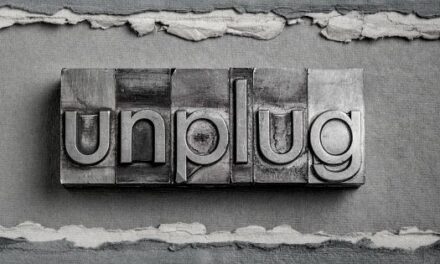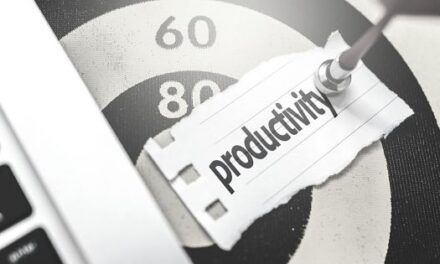If you’re a tradie, freelancer, contractor, or small business owner wanting to take out a loan, the easiest way to do so is by applying for a personal loan for the self-employed.
These loan applications are structured differently from standard loans, specifically to meet the needs of people who don’t have a fixed monthly income or proof thereof.

Therefore, a personal loan for self-employed people may require different and additional documentation from a standard loan. Your documentation must be correct when applying, as being declined for numerous loans reflects poorly on your record.
Here’s everything you need to know about personal loans for self-employed people.
Why Are Personal Loans for Self-Employed People Different From Standard Loans?
Lenders consider a stable, constant income as good security and are more likely to approve a personal loan to borrowers who can prove this.
It’s seen as a lower risk that borrowers will default on their payments if they receive a specific amount of money in their bank account every time they receive their salary on the set date.
On the other hand, self-employed people can have erratic and unpredictable income streams. As a result, lenders require additional security from self-employed people to ensure they’ll honour their personal loan repayments.
What Types of Loans Can Self-Employed People Get?
Self-employed people should consider looking beyond banks and big financial institutions. While they follow stringent procedures and protocols, private lenders can be more lenient and prepared to assess your personal financial situation.
Note that even though these lenders are more willing to approve non-standard loans for self-employed people, they are still at risk of the borrower defaulting on payments. So, they may have additional fees and charges as security.
It can be beneficial to shop around and find the right private lender with rates to suit your pocket. Also, find out the documentation requirements to determine whether you can provide what they’re asking for.
1. Low Doc Loans
People who don’t have the typical financial documentation that financial institutions require for standard loans can benefit from low documentation (low doc) loans.
Low doc loans offered by private lenders require documentation appropriate to someone in a self-employed capacity specifically, such as:
- a declaration of income statement that’s been signed off
- an accountant letter
- proof of Goods and Service Tax (GST) registration, and
- any Business Activity Statements (BAS).
2. Specialist Self-Employed Loans
Some lenders offer particular loans for people in specialist fields. For example, they could have “personal loans for ABN holders” or “loans for tradies” that require specialist documentation appropriate to that field.
This route can be more straightforward if you find a specialist self-employed loan to suit you because the loan is designed for people in your exact situation.
3. P2P Loans
P2P loans refer to peer-to-peer loans. Borrowers can access these via a website that connects borrowers to investors.
Borrowers apply for a loan using the online platform, and the website facilitates an investor to fund the loan. The borrower’s fees and charges are divided between the website and the investor, and that’s how they make their money.
What About Taking Out a Credit Card?
Having numerous declined applications on your record can make your borrowing power unattractive to future lenders, and credit cards are no different.
Some lenders offer credit cards to self-employed people, and Creditcard.com.au lists them for your convenience.
Remember, credit cards often have higher interest rates than personal loans.
Can Self-Employed People Apply for Personal Loans?
Standard personal loans can be an option for self-employed people so long as they can meet the documentation requirements.
These can be:
- two years’ tax returns (personal and/or company)
- two years’ Notice of Assessment by the Australian Tax Office (ATO)
- Australian Business Number (ABN)
- proof of company address
- company license, and
- bank statements proving income, business transactions, profits and losses, loans and credit cards.
A consistently good credit history can work in your favour because it proves to lenders your faithfulness, making you a good borrowing candidate.
Calculate your borrowing power for a standard (unsecured) personal loan, or consider a secured personal loan that requires an asset as collateral to act as your loan’s security.
Secured Personal Loans
A secured personal loan is tied to an asset belonging to the borrower as a form of guarantee.
The lender is entitled to repossess the agreed-upon asset if you dishonour your payments and start accumulating debt to cover the costs incurred.
Secured personal loans can be approved quicker than unsecured loans because the lender has enough security. And they can often have lower interest rates.
But, before you go ahead, consider whether you can afford to lose the asset should you be in a position where it has to be repossessed.
Guarantor Personal Loans
Lenders are partial to loans with adequate security. Suppose you can get an employed friend or family member to agree to be a guarantor for your loan. In that case, there’s a better chance that a lender will approve your application, especially if they have a good credit history.
Your guarantor would tie their assets to your loan as security. This could be a car, cash, or equity from their home.
If you default on payments and cannot consolidate your debt, your guarantor will be liable to pay the amount they guaranteed. Because the guarantor is the one who is at risk, finding someone to agree can sometimes be a difficult task.
Key Takeaways
Many Australians don’t work for large institutions and have instead decided to branch off on their own. Luckily, many private lenders have identified the switch in borrower types and have developed specialist loans for self-employed people.
These include:
- low doc loans
- specialist loans, and
- P2P loans.
Bigger financial institutions are making opportunities available for self-employed people, too but require additional documentation.
Borrowers with adequate documentation can apply for a credit card from a bank as an option, but personal loans generally incur lower fees and charges. Or, they can consider a secured personal loan or a guarantor personal loan.
Remember, being denied a loan or credit card reflects poorly on your credit record. So, it’s worth speaking to a professional and employing the services of a financial advisor or mortgage broker.
Under appropriate guidance, you can be more likely to find a loan solution that suits your current financial situation and your future goals. And a mortgage broker can provide steps and strategies to help you submit a successful application.
Regardless of your employment situation, receiving financial aid is possible with the proper research and knowledge of what’s out there and understanding how to get it.
Disclaimer:
Please note that every effort has been made to ensure that the information provided in this guide is accurate. You should note, however, that the information is intended as a guide only, providing an overview of general information available to property buyers and investors. This guide is not intended to be an exhaustive source of information and should not be seen to constitute legal, tax or investment advice. You should, where necessary, seek your own advice for any legal, tax or investment issues raised in your affairs.



















